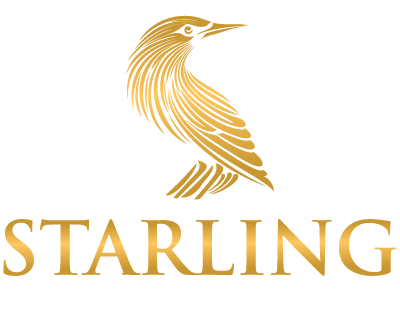Understanding the Costs of Care at Home

Clear, calm guidance to help you explore your options
Thinking about care at home often raises questions about cost. At Starling, we understand that decisions around care are rarely just practical. They often come with questions, uncertainty, and the weight of wanting to get it right. This guide is here to help you explore your options with clarity and calm. No jargon. No pressure. Just the key things to know and where to go next if you would like more support.
What Are the Main Ways to Pay for Care at Home?
There are four common ways families fund care at home:
- Private pay (self-funding)
- Local authority funding
- NHS Continuing Healthcare
- Short-term support or blended options
Everyone’s situation is different. What works for one person may not suit another. We are always happy to talk through your individual needs.
At Starling, our care packages range from 30-minute visits through to 24-hour support. Whether you need occasional help or more regular, round-the-clock care, we can shape a plan around your lifestyle and priorities.

This is the most common route for many families. You or your loved one pays directly for the care you receive. You can decide what type of care feels right, how often it is delivered, and how it fits into everyday life.
At Starling, we keep our pricing clear and transparent. There are no hidden costs and no long-term contracts.
Every care plan we create is built around the person receiving it, shaped by what matters to them and designed to support daily life in a way that feels natural, manageable and truly their own, so you are always in control of how much or little care you receive.
Depending on income, savings and care needs, you may be eligible for help from your local council. This usually starts with a care needs assessment, followed by a financial assessment. If eligible, the council may pay directly for care or offer a Direct Payment, giving you control over who provides the service.
You can learn more or start the process by visiting the Hertfordshire County Council website.
If you’re eligible for council funding, you can request this as a Direct Payment. This gives you more choice over who provides your care and how it’s delivered.
Some people with complex, long-term health needs may qualify for NHS Continuing Healthcare. This is fully funded by the NHS and covers all care needs.
Eligibility is assessed based on care needs, not diagnosis. If you think this might apply, we can talk through the basics and help you explore next steps with your GP or healthcare team.
There may be additional help available during times of transition.
This could include
- Short-term reablement after a hospital stay
- Temporary funding while longer-term plans are made
- Blended arrangements that mix private and funded care
We are always happy to have a chat about what is available and what might feel like the right fit for you.

FAQs
Do you charge for advice or building a care plan?
No. We never charge for initial advice or guidance. In fact, we encourage you to ask as many questions as you need.
We understand how important it is to have clear, honest information so you can make the decision that feels right for you.
We are always happy to talk things through by phone or visit you in person if that’s easier. There is never any extra cost for this support.
Can we begin with private care and switch to funded care later?
Yes. Many families start this way. If your situation changes, we will support you through the transition.
How much does care at Starling Homecare cost?
How to Get Started
- Think about what type of help would make life easier
- Check if you or your loved one might be eligible for support
- Speak with us. We can guide you through options and next steps
Want to talk it through?
Call us or fill in our short enquiry form. We are here to listen and help you explore what might feel right, whether that is with us or simply pointing you in the right direction.
